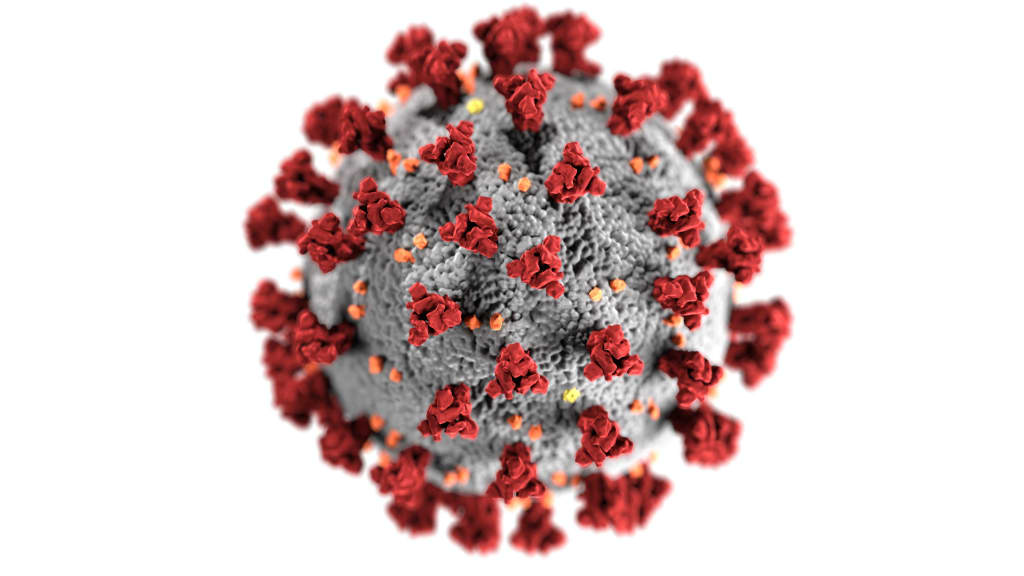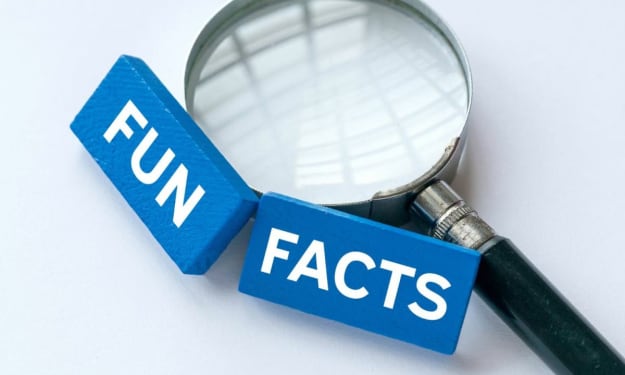
Will autism diagnoses increase as the pandemic fades?
Erin Knipe was diagnosed with a sore throat, ear infection, and a persistent cough in January 2020, during her fifth month of pregnancy. She was exhausted: she had made it through her first trimester's morning sickness only to be knocked unconscious by what appeared to be a nasty cold.
Knipe's doctor ordered an antibiotic for a potential bacterial infection and a steroid inhaler to manage her asthma, which had been exacerbated by the cough, when she hadn't improved after a few days. She recovered after four agonizing weeks, just as the first wave of the COVID-19 epidemic hit the United States. She gave birth in May and promptly registered herself and her daughter in a study of children born during the pandemic, eager to contribute to scientific research.
Knipe had expected to be in the study's control group with her kid. However, they both showed antibodies to SARS-CoV-2, the virus that causes COVID-19, according to an early blood test. The presence of those antibodies, according to the research team, showed she had unknowingly received the virus while pregnant, likely in January. They couldn't tell her what the illness would signify for her baby because it was such a new virus and disease.
In most cases, a little illness during pregnancy is not cause for alarm. "Most women will be exposed to viral and bacterial infections during pregnancy, and the majority of them will have neurotypical offspring," says Melissa Bauman, a professor of psychiatry and behavioral sciences at the University of California, Davis, who was not involved in the study Knipe took part in.
Severe infections, especially those that necessitate hospitalization, have been associated to an increased risk of having a kid with autism or other psychiatric disorders. Although it's still new, severe COVID-19 has already been linked to an increased risk of certain pregnancy issues, such as preterm birth, which is linked to an increased risk of autism in children.
Because of these links, scientists and doctors are looking for signs that the COVID-19 pandemic will increase the prevalence of neurodevelopmental disorders in the coming years. They're studying the long-term development of prenatally exposed children like Knipe's daughter, as well as the immune responses of pregnant women who get the virus vs those who don't.
Although some indirect evidence suggests that prenatal SARS-CoV-2 infection can affect neurodevelopment — especially in cases of severe infection — the initial data on newborns born during the epidemic suggest very minor impacts. But it's unclear if that trend will remain over time, or what else might influence a child's developmental results in addition to mother infection.
"We now conceive of infection exposure during pregnancy as a disease primer that, when combined with other genetic and environmental risk factors, may enhance the chance of abnormal neurodevelopment for a subgroup of exposed pregnancies," adds Bauman. "Understanding which pregnancies are at risk and which are resilient to prenatal immunological assault is the primary problem."
Although SARS-CoV-2 is a new pathogen, scientists have been researching how viruses and other infectious agents affect embryonic brain development for decades.
Some infections have an impact on development by directly transmitting from a pregnant mother to her fetus, a process known as'vertical transmission.' The Zika virus, for example, can penetrate the placenta and disrupt embryonic brain development, resulting in microcephaly and, even in moderate cases, language difficulties and other developmental issues.
Vertical virus transmission, on the other hand, is uncommon. So far, the research suggests that it is conceivable, but rare, with SARS-CoV-2, and that even in these situations, there do not appear to be major impacts.
"We were reassured early on that it doesn't appear to cause vertical transmission in the same way that Zika does," says Karin Nielsen-Saines, a pediatrics professor at the University of California, Los Angeles, who has studied Zika and is involved in the COVID-19 study in which Knipe is a participant.
According to the'maternal immune activation theory,' even if a virus never enters the fetus, the woman's immune response to the invader can nonetheless wreak havoc on fetal brain development. To gather evidence for this theory, researchers injected viruses or bacteria-like chemicals into pregnant mice, rats, and monkeys to boost their immune systems. They discovered that immunological signaling molecules released in response to the fake infection can make their way to the placenta, alter fetal brain structure, and raise the chance of autism-like characteristics in the baby.
Although the specific mechanisms are unknown, studies in mice suggest that unusual maternal immune profiles influence the developing fetal brain by interfering with microglia, which are specialized immune cells that assist prune connections between neurons.
Certain immunological signaling molecules, especially inflammatory cytokines that help a woman's immune system rally, have been linked to a higher risk of autism in her child in humans. According to study, certain mothers who have autistic children have exceptionally high gestational levels of inflammatory cytokines termed interferons and interleukins. In addition, fetal exposure to immunological signals like IL-6 has been related to abnormal brain connections. Women with autoimmune diseases, which cause levels of these molecules to be dysregulated, are more likely to have autistic children.
According to research, SARS-CoV-2 infection during pregnancy can result in similarly abnormal immunological profiles. In a study of 23 pregnant women, those infected with SARS-CoV-2 had higher levels of the cytokine IL-8, which has been associated to abnormal brain development in the past. And, according to Nielsen-Saines and her colleagues, around 20% of 93 pregnant women had severe COVID-19 infections, which caused much more inflammation than lesser sickness.
Nielsen-Saines' team also discovered that children exposed to SARS-CoV-2 before birth have dysregulation of the Wnt signaling system, a key developmental signaling pathway involved in brain development. Autism and schizophrenia have been linked to disruptions in this route. Although additional research is needed, the discovery of Wnt's link to COVID-19 adds to concerns about the long-term effects of SARS-CoV-2 infection during pregnancy.
"It could indicate that there may be concerns with neurodevelopment in infants born to women with severe disease in the future," Nielsen-Saines says.
Despite these findings, the early evidence on babies who were exposed to SARS-CoV-2 during pregnancy is reassuring. So far, the majority of these babies have shown no evidence of unusual development.
In a prenatal imaging research in Germany, for example, newborns born to women who had mild or moderate COVID-19 throughout pregnancy showed age-appropriate brain development, with no changes from babies born to moms who were not infected. According to a research released in January, babies born in New York City from March to December 2020 to women with mild or moderate COVID-19 exhibited no symptoms of delayed motor or social development.
"This does not mean that we should let pregnant women to become infected," says Dani Dumitriu, an assistant professor of pediatrics and psychiatry at Columbia University and the study's principal investigator. "However, if they do become sick, they don't have to be concerned about the consequence."
According to Brian Lee, an associate professor of epidemiology and biostatistics at Drexel University in Philadelphia, Pennsylvania, who researches correlations between prenatal exposures and autism, the studies that have yielded results thus far are all quite small. But, he believes, if SARS-CoV-2 affected brain development to the same extent as Zika, it would be obvious.
"It appears that we'll be searching for more modest effects on the spectrum of severity of probable neurodevelopmental consequences."
Such minor changes may likely take time to manifest, and pinpointing the major contributors may be difficult.
Early studies may not have included enough severe COVID-19 cases to determine how illness severity correlates with embryonic neurodevelopment alterations, for example. Although pregnancy is a risk factor for severe COVID-19, according to the Centers for Disease Control and Prevention, only around 4% of infected pregnant women in the United States were hospitalized to an intensive care unit between January 2020 and February 2022. A quarter of the women were admitted to the hospital, however this proportion is likely to include women admitted for a variety of reasons.
There are a lot of confounding factors to consider, says Anna-Sophie Rommel, an assistant professor of psychiatry at Mount Sinai's Icahn School of Medicine in New York City, who is working on a study called Generation C that involves more than 2,500 women and their babies who received obstetrical care in the Mount Sinai Health System during the pandemic. It's hard to identify whether a pregnancy difficulty is caused by COVID-19 or because individuals who are more likely to contract COVID-19, such as those who are economically and socially marginalized, are also more likely to have pregnancy complications, according to Rommel.
Infection with SARS-CoV-2, however, does not appear to "add to an already heightened risk of severe maternal and newborn outcomes," she says.
Large, long-term research gathering substantial data on mothers' health and children's outcomes, such as Generation C and the University of California, Los Angeles study in which Erin Knipe is participating, are best positioned to unravel those issues. However, because many neurodevelopmental disorders are identified within the first few years of life, it may be too early to say if the number of autism diagnoses has risen.
"Most of the children who were exposed to the virus in utero are still very young or have yet to be born," says Lisa Croen, a senior research scientist at the Kaiser Permanente Division of Research in Oakland, California, who is leading a long-term study of maternal inflammation's impact on children's neurodevelopmental outcomes. Croen and her colleagues are also looking into how SARS-CoV-2 exposure affects these outcomes, as well as another cause of maternal inflammation, environmental stress, which some experts believe may have a greater impact than the virus.
In the same study that revealed no link with maternal COVID-19 and abnormal development in 6-month-old newborns, researchers discovered a link between development and just being born during the pandemic. Children who were in utero and in the first trimester when the epidemic first hit New York City showed lower motor and social abilities than children born before the outbreak.
According to Gráinne McAlonan, professor of translational neuroscience at King's College London in the United Kingdom, the findings are not surprising in some aspects. "We know that illnesses like sadness and stress in pregnancy have consequences that damage some of the kids," she explains. "If you look back to 2020, that would be a really scary moment if you were pregnant at the time."
McAlonan is leading an imaging study that will assess the brain development trajectories of infants exposed to various types of maternal stress and inflammation. She and her colleagues may be able to tease out any abnormalities that come especially from prenatal exposure to SARS-CoV-2 because that experiment was continuing prior to the epidemic, which they want to begin looking into in the coming months.
McAlonan says, "I expect to see something." "Having said that, I believe the jury is still out on whether those changes actually create something developmentally concerning. And I'm sure it'll be a lot more complicated than we imagine."
About the Creator
Enjoyed the story? Support the Creator.
Subscribe for free to receive all their stories in your feed. You could also pledge your support or give them a one-off tip, letting them know you appreciate their work.






Comments
There are no comments for this story
Be the first to respond and start the conversation.